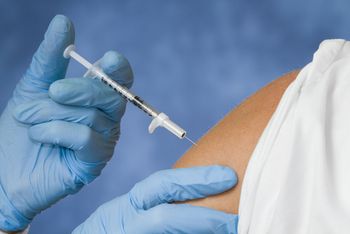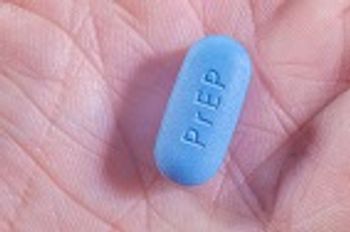
An antiviral drug that could offer months of protection against the flu may be on the horizon and ready to fill in some of the gaps of the seasonal flu vaccine.

An antiviral drug that could offer months of protection against the flu may be on the horizon and ready to fill in some of the gaps of the seasonal flu vaccine.

In the aftermath of Cyclone Idai, more than 1000 cases of cholera have been reported in Mozambique.

This In the Literature piece details a study evaluating the appropriateness of prescriptions in comparison to evidence-based guidelines and expert opinion.

The latest case cluster in the United States has led a university to change policy regarding the MMR vaccine.

Are the threats of CMS financial penalties creating tunnel vision for certain hospital-associated conditions?

The American Academy of Pediatrics is giving its recommendation to the nasal spray form of the influenza vaccine for the 2019-2020 flu season, meaning parents will have 2 choices when getting their children vaccinated this fall.

A 1-month course of rifapentine plus isoniazid is non-inferior to 9 months of isoniazid alone for preventing TB in individuals with HIV, a study reports.

A recent study has found that a new method of testing circulating H3N2 flu viruses may help flu experts in selecting seasonal vaccine components.

A neural model suggests the frontal lobe is affected early on in HIV disease and the caudate/striatum area is affected when neurocognitive disorder symptoms develop.

A new study found an average decrease of sexual anxiety by 0.27 points when participants were on PrEP compared with before treatment.

Here is a look at infectious disease related US Food and Drug Administration news from the week of March 24, 2019.

We’ve rounded up a list of important US Food and Drug Administration (FDA) and US Department of Agriculture (USDA) recalls from this past week.

Stay up-to-date on the latest infectious disease news by checking out our top 5 articles of the week.

To shed light on the current measles outbreaks, Contagion® is launching a video series featuring the perspectives of 2 medical experts.

On any given day 590,000 individuals are incarcerated across the EU, yet surveillance and reporting for new infectious disease diagnoses are only required for tuberculosis.

Investigators at Georgia State University have received a federal grant to explore if a microneedle patch could be a universal flu vaccine candidate.

The CDC has released new guidance on the treatment for severe malaria following the manufacturing discontinuation of the only FDA approved IV antimalarial.

A team of doctors at Johns Hopkins has completed the first ever living donor HIV-positive to HIV-positive kidney transplant.

Investigators are now exploring whether the “health care-associated” label for pneumonia is actually doing more damage than anticipated.

Following a 1-month delay, WHO experts have issued a recommendation for a new influenza A(H3N2) component for next flu season.

With a disproportionate percentage of new HIV infections occurring in young MSM, tech tools may be a way to counter this trend.

Donald Jensen, MD, discusses the hepatitis A outbreaks that have been declared in 18 states since 2017, highlighting modes of transmission, vaccine recommendations, and the implications of co-infections.

Findings of 2 recent studies illustrate the often-preventable risks associated with surgery.

A new study of cockroaches collected from an Iranian hospitals sheds light on how these insects can carry and spread resistant microbes.

A new report indicates that resistant isolates of gonorrhea were detected in more European countries in 2017, and may soon threaten the current recommended treatment protocol.

PrEP isn’t covered by health insurance in Germany, and non-prescription use of the HIV preventive is common. But is it safe?

A handful of major measles outbreaks have underscored the importance of childhood vaccination, but experts say other diseases, chiefly pertussis, could also come back in force.

A survey of MSM and transgender women found that diverse formulations and regimens for PrEP, such as long-acting injectables and “on-demand” PrEP, could increase uptake and persistence.

The study found that that acute care hospitals with a 20% reduction in fluoroquinolone or third and fourth generation cephalosporins had a “corresponding decrease” in hospital-onset C diff.

A study reports that estimates of influenza epidemic outcomes may be improved by focusing on behavioral discrepancies in different demographics.